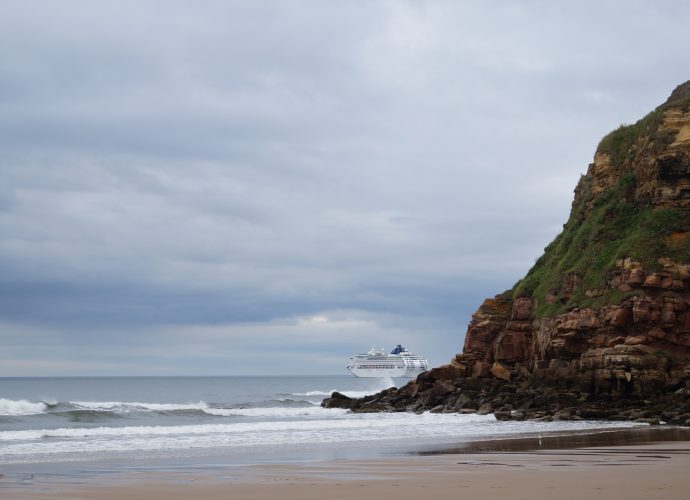The new travel restrictions will be in place from 5 November.
COVID-19 case numbers are rising rapidly across the whole of the UK and in other countries. We must act now to control the spread of the virus. The single most important action we can all take to fight coronavirus is to stay at home, to protect the NHS and save lives.
When we reduce our day-to-day contact with other people, we reduce the spread of the infection. That is why, from 00:01 on Thursday 5 November until Wednesday 2 December, you must:
- Stay at home, except for specific purposes.
- Avoid meeting people you do not live with, except for specific purposes.
- Close certain businesses and venues.
On Thursday 5 November these national restrictions will replace the Local Covid Alert Level measures.
Travel
If you live in England, you must stay at home and avoid travel in the UK or overseas, unless for work, education or other legally permitted reasons. If you need to travel you should look to reduce the number of journeys if possible.
However you can and should still travel for a number of reasons, including:
- travelling to work where you cannot work from home
- travelling to education and for caring responsibilities
- to visit those in your support bubble – or your childcare bubble for childcare
- hospital, GP and other medical appointments or visits where you have had an accident or are concerned about your health
- to buy goods or services from premises that are open, including essential retail
- to spend time or exercise outdoors – this should be done locally wherever possible, but you can travel to do so if necessary (for example, to access an open space)
- attending the care and exercise of a pet, or veterinary services
If you need to travel we encourage you to walk or cycle where possible, and to plan ahead and avoid busy times and routes on public transport. This will allow you to practise social distancing while you travel.
You must not travel if you are experiencing any coronavirus symptoms, are self-isolating as a result of coronavirus symptoms, are sharing a household or support bubble with somebody with symptoms, or have been told to self-isolate after being contacted by NHS Test and Trace. The fine for breaching self-isolation rules start at £1,000. This could increase to up to £10,000 for repeat offences and the most serious breaches, including for those preventing others from self-isolating.
If you need to travel you should follow the safer travel guidance. This includes the rules on wearing face coverings and advice on car sharing.
Guidance for operators of public transport
For those planning to travel into England, you should check the current travel corridor list to see whether you need to isolate for 14 days. You will still be required to abide by the restrictions set out here even if you do not need to isolate. If you do need to travel overseas from England before 2 December (and are legally permitted to do so, for example, because it is for work), even if you are returning to a place you’ve visited before, you should look at the rules in place at your destination and the Foreign, Commonwealth and Development Office (FCDO) travel advice.
UK residents currently abroad do not need to return home immediately. However, you should check with your airline or travel operator on arrangements for returning.
Staying away from home overnight
You cannot leave home for holidays in the UK or abroad.
You can stay overnight with someone in your support bubble or childcare bubble.
You cannot stay overnight away from your main home in other circumstances unless permitted by law. This includes staying in a second home or caravan, if you own one, or staying with anyone you do not live with or are in a support bubble with.
You are allowed to stay overnight away from your home if you:
- are unable to return to your main residence
- need accommodation while moving house
- need accommodation to attend a funeral or related commemorative event
- require accommodation for work purposes or to provide voluntary services
- are a child requiring accommodation for school or care
- are homeless, seeking asylum or a vulnerable person seeking refuge
- are an elite athlete or their support staff or parent, if the athlete is under 18 and it is necessary to be outside of the home for training or competition
If you are already on holiday, you should return to your home as soon as practical and comply with the ‘stay at home’ requirements in your holiday accommodation in the meantime.
Guest accommodation providers such as hotels, B&Bs and caravan parks may remain open for the specific reasons set out in law, including where guests are unable to return to their main residence, use that guest accommodation as their main residence, need accommodation while moving house, are self-isolating as required by law, or would otherwise be made homeless as a result of the accommodation closing. Accommodation providers are also encouraged to work cooperatively with Local Authorities to provide accommodation to vulnerable groups including the homeless during this period of national restrictions.
The new measures, alongside with other lockdown restrictions, will apply nationally from tomorrow for four weeks up to Wednesday 2 December. At the end of that period, we will return to a regional approach, based on the latest data.
These measures will be underpinned by law. Police and other authorities will have powers to give fines and break up gatherings.
Image: A ferry in Newcastle upon Tyne, Tyne and Wear, North East of England, June 2020 / @ MIB











Thanks!
Our editors are notified.